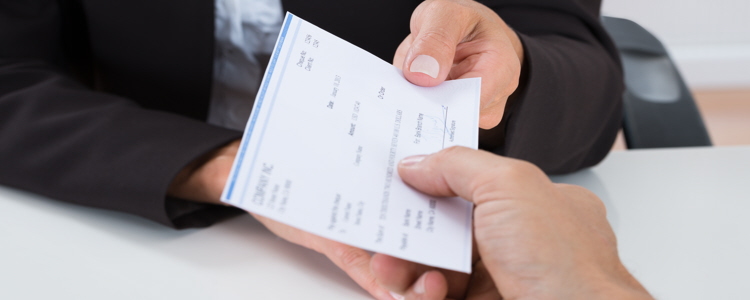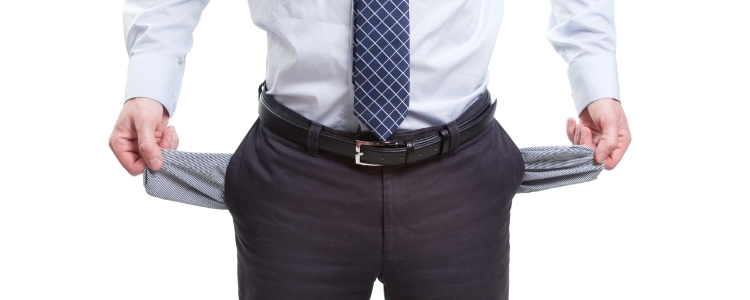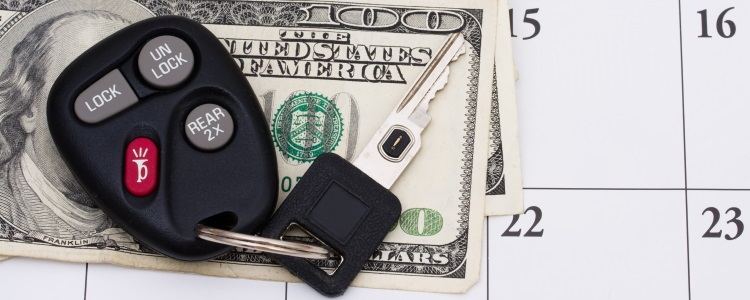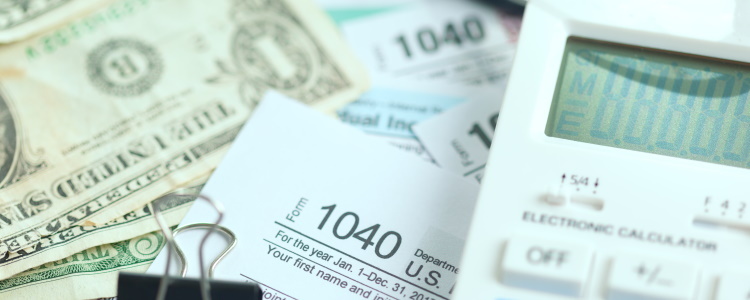If you walk into a car dealership with severely damaged credit (possibly a credit score of 480-580), it may be suggested that you provide a down payment that equals at least 10% of the vehicle's price. Some lenders may even ask for as much as 15%-20%. Why? It is certainly not to penalize you for your credit situation. Rather, having such a substantial down payment will make it easier for you to successfully complete the auto loan.
The dealer is actually trying to help you.
Down Payments and Risk Management

Dealers who understand and are willing to work with subprime (bad) credit will do everything they can to get you approved for financing. And it isn't always easy. Getting a loan for a subprime customer requires more paperwork, more time and an excellent grasp of the complicated rules and regulations that are attached to subprime lending.
Your dealer will also be challenged with minimizing risk for the lender. Of course, you know that you are actually not a loan risk. You fully intend to make every single payment on your auto loan. You need this car and you don't intend to lose it. Not only that, but you know that by making timely payments, you will be gradually improving your credit.
However, the lender does not know you. They must make an approval decision based largely on your credit report and score. If you have a history of making late payments, not paying at all, or if you have declared bankruptcy, most lenders will put you into the category of "risky." How do they know that you will pay them back if you have struggled to meet financial obligations in the past?
Luckily, dealers who work with subprime buyers are typically connected to subprime lenders. These lenders do look at your credit report and score, but they also take other factors into consideration.
- Your Job: If you have had the same job for at least a year and you have a steady, qualifying income, it can be established that you can afford to make your car payments.
- Your Home: If you have lived at the same address for over a year, it is apparent that you have achieved a level of stability in life, and you have obviously been keeping up with your rent or mortgage payments.
- Your Down Payment: A down payment does a lot to decrease your risk as a borrower. First of all, having one decreases the amount of your loan. By asking to borrow less, you immediately cut the risk for the lender. Also, if you are willing to provide a substantial down payment, the lender knows that you are serious about committing to the purchase because you are making a financial investment right out of the gate. You have "skin in the game," so to speak.
So, a lender may stipulate a larger down payment because this will make it possible for them to approve you. And . . . Are you ready for this? The money that you put down right now will actually save you money down the road.
How a Down Payment Will Save You Money
Sure, it may be a hassle to come up with a chunk of cash to put down on a car, and it can be hard to part with so much money all at once. But you will eventually thank yourself (and possibly your lender) when your ownership experience turns out to be affordable.
- Your monthly payments will be manageable. With subprime credit and a smaller down payment, you may have to settle for either a loan (with a higher interest rate) with a very long term (6-7 years) or expensive car payments that could be difficult to make. However, with a larger down payment that reduces the amount of your loan, your monthly payments should fit your budget more comfortably.
- You will pay less in interest over time. While you may still have to pay a higher interest rate, by financing a lower amount, this higher interest rate will be less of a burden. For example, let's say that your interest rate is 15%. If you take out a 48 month loan for $15,000, you'll end up with $5,038 in interest charges. If you come up with as little as $1,000 down, that drops to $4,702. If you put down $3,000, the interest charges fall to $4,031.
- It will be easier to build equity in the vehicle. Both new and used cars depreciate in value as they age. What does this mean for you, the owner? It is entirely possible for your vehicle to depreciate faster than you can pay it off. And at some point, you may decide that you would like to trade the car in for a different one, only to discover that it is worth, say, $6,000, but you still owe $8,000. What happens with the $2,000 difference? You can either pay it or roll it into a new loan, but that will only make it more likely for you to find yourself in an even worse predicament later. Your down payment will give you a head start on reducing the effects of depreciation and establishing "equity" in your car. And the more you put down, the more equity you will have.
If saving up the kind of down payment that will really make a difference in your car purchase sounds like a daunting task, don't be discouraged. Remember that if you have a trade-in with cash value, this will count as part of your down payment total. You may also choose to finance your car after you have received your tax refund. So, if you add up the amount of your trade-in value, your tax refund and whatever cash you are able to put aside through budgeting, you should be able to provide the kind of down payment that will increase your chances for approval and improve the quality of your ownership experience down the road.
Easy Subprime Financing
If you have serious credit issues and need to buy a car, you may be worried that it will be difficult to find a dealer who can help. But Auto Credit Express can make this fast and simple. We can immediately connect you with a qualified dealer in your area, saving you both time and frustration. Our service is free and requires no obligation to buy.
All you have to do is fill out our quick and secure online application to get started today.
















